How Taking Baby Steps Made a Big Difference in My Life

Table of Contents
Have you ever been in a situation where you know there is a way to solve a problem and there are countless books and advice columns telling you what to do, but you just don’t know where to begin?
Countless.
Maybe THAT’S the problem. Everyone has an opinion about what you need to, but nobody tells you how to get there.
This situation became very personal to me when I was diagnosed with a progressive disease in 2008.
I had two choices, the way I saw it – figure out how to turn big, unrealistic goals into smaller, more manageable ones, or be overwhelmed and give up altogether.
I chose the former.
The questions I needed to answer were “how can I slow this thing down?” and “how can I improve my life despite my loss in abilities?”
Faced with such seemingly insurmountable goals was daunting, I admit. What was I thinking?
I’ll tell you what I was thinking – Panic. Concession.
It felt a little like that falling feeling you get when you first fall asleep.
But the stakes were high. Much higher than I’ve had to deal with before.
Not only did my future depend on it but so did my legacy. How my kids would remember me!
I HAD to figure out how to make some progress.
Still, when you get down to it, it’s just solving a problem. The method I used wasn’t rocket science – it just takes discipline and patients.
Not a given when you are in a high-stress situation!
This isn’t unique to me, either – you could use the same method to make improvements in your life.
I won’t claim to know about other issues, but I bet you could, at least, make some progress.
Do you suffer from depression?
Have weight issues?
Looking for more balance?
I’ve even used this method to accomplish other goals, from changing my diet to writing this blog post.
“Nothing is particularly hard if you divide it into small jobs.” ~ Henry Ford
Take the Goal and Break it Down
So how did I do it? What was my objective? I needed a defined goal.
My objective is and was not to get worse quite so fast. Not very objective – more like subjective!
To a point, but accomplishing a goal that you set for yourself is determined by you, anyway, isn’t it?
What I needed to do was to ask myself the right questions to help me break things down.
In other words, I needed things to be specific.
What are the major offenders that people talk about? ‘
I could find those on forums, blogs, support groups (in my case – but this could be things like networking or Church groups as well).
What does the research say?
No sense in reinventing the wheel, right?
If someone has socked money into researching it, there’s probably data out there, and it would certainly be a legitimate place to look.
What does intuition tell me?
We are all experts at what we do, so isn’t it reasonable to assume that we have a good idea what we need to do and why we need to do it?
Don’t sell yourself short! If you think it’s right, it probably is, and that’s a good place to start.
Now, I had read a lot about nutrition and its impact on a whole host of health problems. I also had a secret obsession with it since my college days. That was an easy one.
Next, it was clear that exercise had a positive and well-documented impact on countless illnesses and tendency to increase the lifespan in healthy individuals. That one also seemed like a no-brainer.
Outlook seemed to influence many things.
There was a lot of evidence tying it to the immune system, and multiple studies showing that a positive attitude made people recover from surgery and illness faster, students less likely to get sick, and vaccines work better.
That, and it just seems to make you feel better. I can live with that!
Sleep is a big one. Even the CDC says we don’t get enough sleep. We have this “full steam ahead,” multi-tasking lifestyle that makes it easy for things like sleep to take a back seat.
People that get enough high-quality sleep are less likely to have weight problems, are more attentive, and recover more quickly. I guess I’d better look at improving my sleep patterns, too.
Oh, and there’s stress reduction. There is a strong link between being stressed and being more likely to die of a heart attack. There are a number of measurable factors that are tied to it as well.
Factors like higher levels of “bad” cholesterol and slower wound healing in stressed out individuals.
That goes on the list, too.
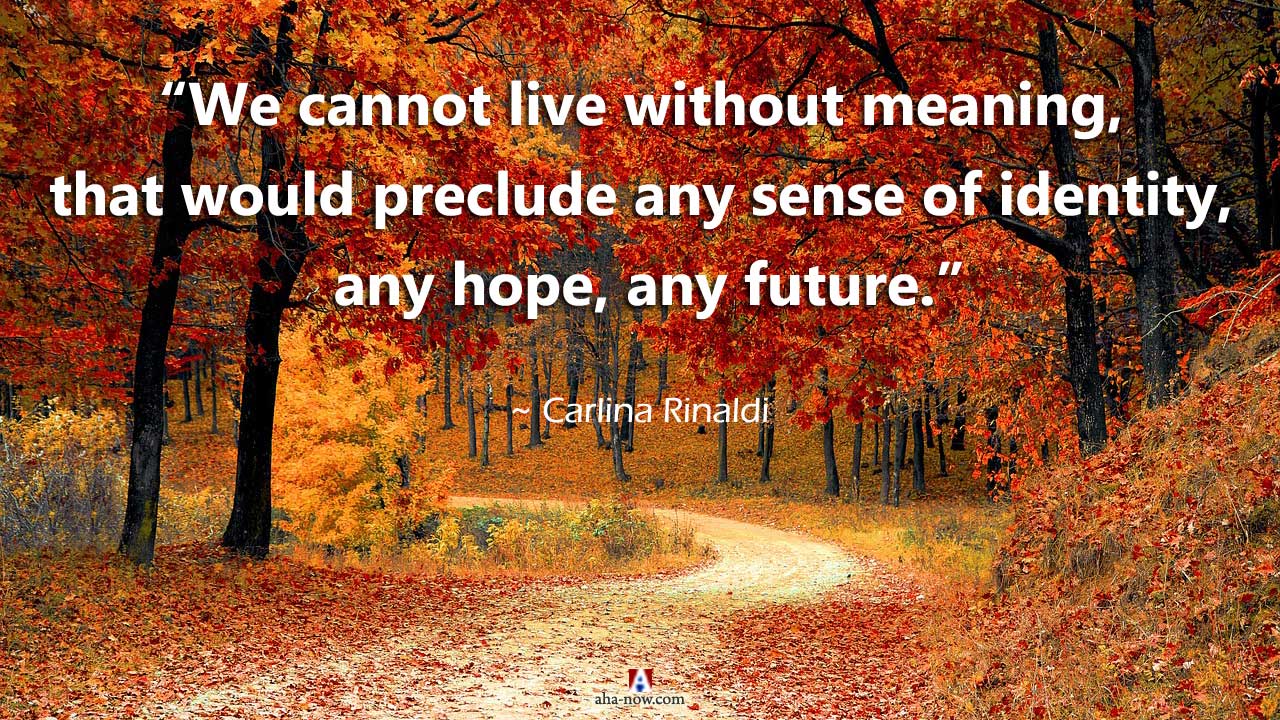
Make your Mini-goals, Specific
The key, here, is that I broke the problem into smaller parts, which I could then address one at a time.
By working on small problems individually, measuring the results was pretty straightforward.
It would’ve been easy to become overwhelmed if I had addressed them all at once and there would have been no way to accomplish the goal “as a whole.”
Where would you start? What would your endpoint be?
So I took them on one at a time and made sure to have a final objective in mind. It needed to be something measurable.
For example, I couldn’t say, “I’ll ride my stationary bike more often.” That is pretty vague, and I’m not likely to follow through with it.
If I said, on the other hand, that “I will ride my bike three times a week for at least 15 minutes,” that’s easier to keep track of. If I can ride for a little longer – great! If I’m feeling extra strong and can bump up the resistance – terrific!
I’ve accomplished my goal, though, because I’ve blocked the time out on my calendar.
The results I’m seeking aren’t setting me up for failure since they’re not performance-based. I’ve made that commitment and can use the time as productively as my body will allow.
Have I Created Attainable Goals
This is what breaking things down does. It makes them achievable.
If I had stuck with that first, big goal, which was really just an emotional response to my diagnosis, I’d either be spinning my wheels or wasting away at an assisted living facility somewhere.
That wasn’t an option.
By breaking the problem down into smaller pieces, they were easier to address and much more likely to produce success.
For example – I knew that regular meditation had created promising results and had been shown in numerous research articles to improve one’s health, no matter what their situation.
It’s a little like rebooting your hard-drive or hitting the reset button.
But there is little chance that I would have successfully made that a part of my routine if I didn’t know the proper technique and tried to address dietary issues at the same time.
I was worried about finding time for it since my sleep schedule was all over the board, and I hadn’t figured out my routine for exercise.
One thing at a time.I took it on by itself enabling me to break that down into even more manageable pieces.
Projects are always bigger than we first imagine, right?
With meditation, I figured out the technique to use, what the proper environment should be, what time of day, and… voila! (well, after a few days of trial and error)
Then, once that was established and part of my routine, I could move to something else. In my case, sleep patterns.
All of these things were part of that same goal I had originally made – just in smaller chunks.
That seemed to be the key to success – make the goals small enough and take them on one at a time so that achieving them is more likely.
“I always like to look on the optimistic side of life, but I am realistic enough to know that life is a complex matter.” ~ Walt Disney
Am I Being Realistic About the Goals I’ve Set for Myself
How likely was I to achieve the goals I had set for myself? That answer seemed to be rooted in the question as well.
If I had committed to running a marathon in two years – that wouldn’t have been realistic.
I was quickly losing strength in my legs and would be lucky to run across the street, let alone 26.2 miles. That would be certainly an unachievable “goal.”
My objective, again, was not to move backward quite so fast. It wasn’t to live in denial and set myself up for failure!
Like a puzzle, I had to analyze the individual pieces and put them in the right places to create the bigger picture that I was going for – the ultimate goal.
Everything that I committed to, needed to be realistic.
If I promised myself, I’d do it, that’s half of the battle, but I needed to commit to things that I could actually do. That were possible.
Things like:
- Ride my stationary bike for at least 15 minutes, 4 times/week
- Do resistance training every 4-5 days
- Get to bed by 9:30 every night and get up by 6:00
- Eliminate refined carbohydrates from my diet
- Eat at least 4 servings of fruits and vegetables/day
- Meditate for at least 10 minutes/day
These were all defined and realistic. I could confidently commit to doing those things.
But some things were not so easy to measure.
Even so, by committing to them, I was more self-aware. Not doing them or forgetting to do them wasn’t a failure – it just made me more cognizant of it the next time.
It really was another learning opportunity.
- Always look at the bright side when someone complains
- Always be positive when someone asks how I’m doing
- Don’t read into a perceived aggressive attitudes
- Always carry myself in a self-confident manner
These were all things that I knew would grow – like a puppy.
I may not see a change overnight, but I guarantee that the difference over the course of six months or a year would be profound.
One of my big goals, early on, was to improve my ability to speak.
Mine was going south in a hurry, and I would have gladly given up a lot of other things to be able to communicate effectively. Talk about motivation!
It turns out that this is one of those bigger, multi-faceted goals that I needed to address in parts.
Based on research and my experiences – how I felt – what did I know about it? How would I address each area?
Stress is a huge factor. I could feel its effects almost instantly, and I knew it was a target. But how would I deal with it?
Meditation, positivity, and going with the flow were all important factors, here.
Sleep certainly seemed to be an issue. The more tired I was, the harder it was to speak clearly.
Then there’s confidence.
It was important that I increase my self-confidence. This almost seemed to be self-perpetuating – it made things better or worse in a hurry.
So by breaking down the bigger picture, even when it seemed too vague, into smaller components, the overall goal was not as daunting.
I found that when I had them figured out and moved passed them, those small victories kept me motivated and worked towards the bigger goal.
More parts mean more victories!
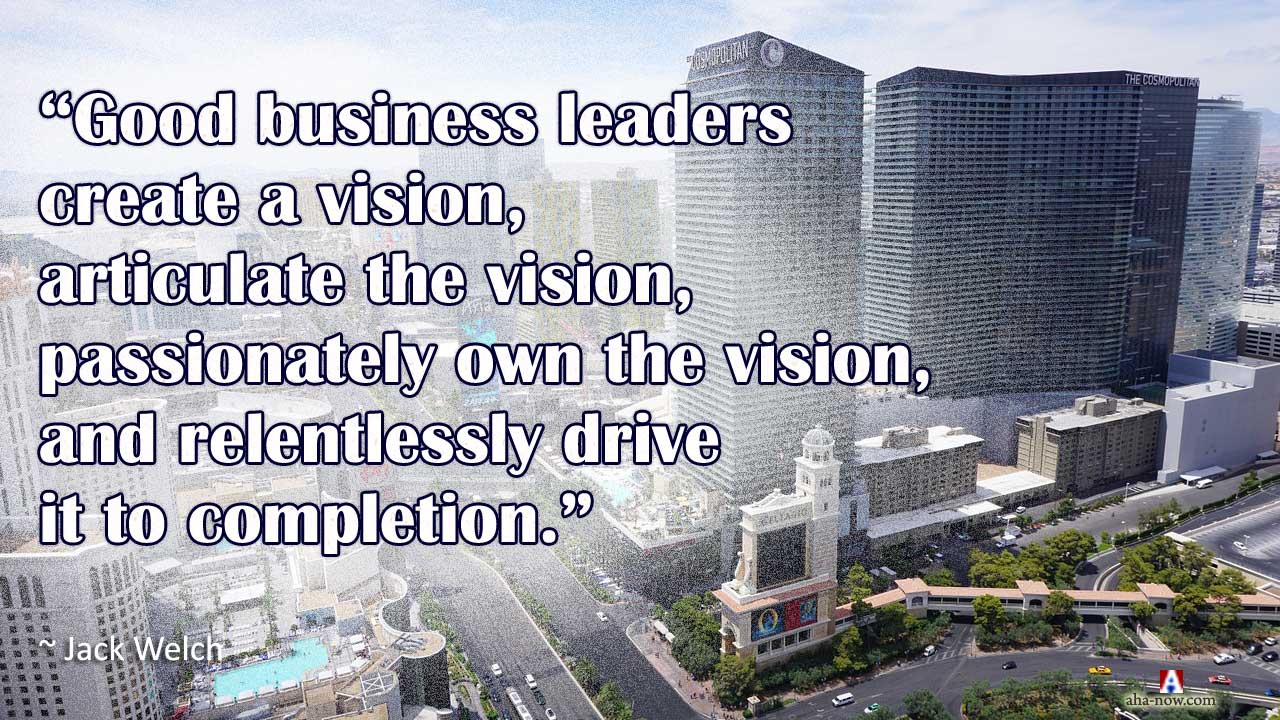
Make Sure your Goals are Time-sensitive
If you don’t create milestones or a deadline, what’s the point?
Completion for me meant that I was doing it, or I wasn’t. That’s pretty easy to measure, isn’t it?
Because of the nature of my overall goal, I was really just looking to be doing the things that I hadn’t been or that I had at least been inconsistent about.
I have applied this method to other things, too – writing, for example.
Rather than simply saying that I should get a post in next Tuesday, I can tell myself that I need to complete 1,000 words (as Harleena talks about here) per day with the overall goal of having a draft together in three days.
That’s a manageable piece, and it’s time-sensitive, so it moves me towards my ultimate goal of having a rough draft ready in three days.
I can set the next set of goals (leading to a final draft ready for submission) when I complete the first.
Achievement of those smaller goals keeps me motivated and gives me a better idea of what’s realistic for the next set. This is a learning process, after all. Right?
Are there steps I can take to get to the end points that I’ve decided on? One thing’s for sure – there wouldn’t have been if my goal had simply been to “try and get better.”
Keeping the goals realistic helps you to make them time-sensitive. These all build on one another.
You can’t measure your progress on a goal unless it’s specific. You wouldn’t know where to start!
You can’t take action on something that’s impossible to achieve – that’s not realistic. Doing any of those things is pointless if you don’t give yourself a deadline!
You have to hold yourself to a cutoff date if you intend to get anything done.
That doesn’t mean pushing yourself so hard that you stress out about it – be realistic. Just make sure you have a deadline, so you follow through.
“Success is nothing more than a few simple disciplines, practiced every day.” ~ Jim Rohn
Set your goals high but break them down into small pieces and give yourself time-frames.
Time frames that are short enough that you don’t lose interest and long enough that you aren’t overcome with anxiety. That will make you not want to do it again.
Wrapping It Up
You need to set yourself up for success!
Just follow these rules – these “SMART” rules for success – and you can complete them.
SMART stands for –
- Specific
- Measurable
- Actionable
- Realistic
- Time Sensitive
I can honestly say that my life is a lot different because of SMART rules for success.
Over to you –
I would love to hear your stories and what you’ve done to achieve your goals and make a difference in your life!
Photo Credit: FreeDigitalPhotos
Disclaimer: Though the views expressed are of the author’s own, this article has been checked for its authenticity of information and resource links provided for a better and deeper understanding of the subject matter. However, you're suggested to make your diligent research and consult subject experts to decide what is best for you. If you spot any factual errors, spelling, or grammatical mistakes in the article, please report at [email protected]. Thanks.





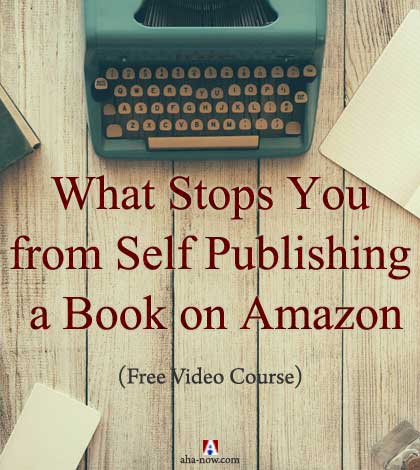
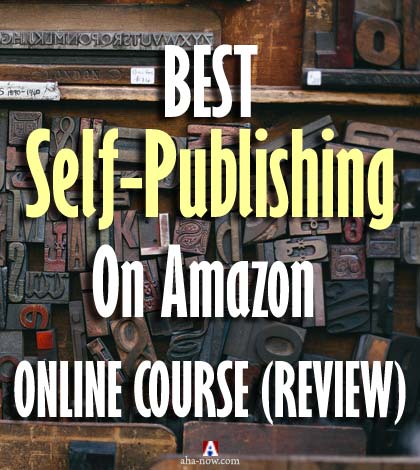

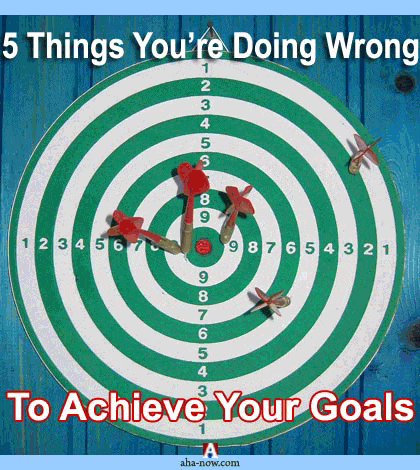


Having a clear idea of your direction, being determined and constant, being resilient, and not be afraid of making mistakes. Oh, and sometimes you need a leap of faith. Believe
Hi Jim,
This is crucial in the process of setting goals: not looking at it as failure when you don’t or forget to do them.
I believe what you tell yourself while you’re learning can be the determine factor for you.
This post lets me know I need to be more specific with my goals.
I love the feeling after you have set a goal and accomplished it. It motivates you to set more realistic goals.
It was a blessing to read this inspiring post.
Thanks, Vernon
I appreciate it, Vernon!
I am really motivated by just the simple accomplishments. I like to visualize that what I’m doing really is improving whatever area of my life that I’m working on. It may sound goofy, but I do it all of the time. That visualization and belief keeps me going and I truly believe that I get more benefit from the activity.
thanks a lot, Vernon!
Jim
Hey Jim,
You really took us through thorough planning. Great work. I could really appreciate this post as it is a process that I use myself. I like nothing better than goals that scare me and breaking them down into achievable steps.
Some are long term but each week or fortnight they get checked in and re-evaluated to make sure I am on track or I may have to focus a little more and allocated more time. But I never fear my workload, dreams or goals – because of my disciplined nature.
However I can’t say that I don’t expect too much from myself because I do and I can’t say that I don’t apply lots of pressure because I do, but I thrive on this. It has taken many months now to get the routine where I fit everything in. And I tell you I knock my marks truly above my own expectation.
I hope your meeting your four 15 minute bike rides, meditation, strengths training. They are great for mental balance. And because you got hooked on eating right years ago that would be a habit now.
I really enjoyed this post, time management,discipline and organisation are topics I can talk about all day. Thanks Jim.
Rachel.
Thanks, Rachel! I didn’t really elaborate on maintaining your goals if that’s what you set out to do. Great point and I really kept it in mind. If it wasn’t something that I could keep up with, it would be a useless endeavor. So, to answer your question – YES – I have managed to keep up with the bike riding, strength training, meditation, and more.
thanks much for the comments!
Jim
Hi, Sarika!
It really wasn’t my attitude. I needed to accomplish something(s) and had to come up with a way to solve the problems. That was the point in me breaking them into such small pieces.
I was truly backed into a corner and I found that breaking things into such small pieces was a way for me to make failure or giving up nearly impossible. That bit of excitement you get when accomplishing those tiny goals motivates you to stick with the next one.
Having a plan also made it easier for me to not expect to give up. If the goal was hard, it was easy to remind myself that success was unlikely and I didn’t try very hard. If it was easier, my expectations changed, too.
Thanks again, Sarika!
Jim
Hi Jim,
Thank you for this inspiring post about how to break up big goals into achievable steps. I am happy to know that you have used this strategy to successfully improve your health condition.
In real life, however, many people can not achieve goals they set for themselves, because they are not serious, passionate, self-disciplined and committed to achieve even the smaller goals. Many of us give excuses for not being able to achieve these goals and simply give up. You have that killer instinct which makes it possible to achieve your goals and I guess you are modest not to mention about that mental attitude 🙂
Cheers!
Sarika
Thanks so much for you comments, Sylviane!
There is no question that breaking things down was one of the most important pieces. I’d love to know the name of that book, if you think of it. Motivation was such a big part of it – I would complete the smaller jobs and be motivated to move onto the next!
Thanks again and take care,
Jim
Hi Jim,
Excellent post and wonderful story of yours you shared here.
You mentioned something so important and that yet, so few people realize the huge benefit of applying it, which is taking small bites of the big chunk of stuff that’s before us.
There is a book which I can’t remember the title now, but I’ve read it 10 years ago, and the whole book is about making the reader understand that taking one small step at the time will make you go forward much better and faster than anything else. One step at the time, does pay off better than a big jump, and then nothing for a long time.
I’m glad you’ve used this technique to improve your situation.
Nice meeting you here at Harleena’s 🙂
~Sylviane
Thanks for your comments, Sylviane!
Breaking things into smaller pieces was one of the main reasons I was successful. I’ve never heard of the book but let me know the name if you think of it.
Thanks again for your kind words. Take care!
Jim
Thanks a lot, Quinn!
I really appreciate the feedback and am still getting my feet wet on this whole blog post writing thing, so it’s definitely helpful!
Smart goals are something that I’ve been hearing about and learning about in the corporate world for a while, as you said, but the problem was always that they had a corporate spin. I really couldn’t make the leap to how they apply to me.
Once the stakes were a little different, I realized that I was using them in a slightly different way but that the theory was the same. I just changed the context and was a little more detailed on my approach.
take care,
Jim
Hi Jim,
SMART goals have been around for a while, but what I really liked about your post was the process you went through in figuring out what your goals need to be. The research that could do, and relying on yourself and your own intuition.
Goal setting is easy. Effective goal setting requires the kind of thought that you put into it.
Thank you very much for sharing!
Oh, and congrats on the terrific opening – it was a grabber!
Warmly,
Quinn
Thanks, Jose – I’m glad you liked it. I have to be realistic when it comes to this stuff – if it’s not small enough to wrap my head around, I’m not going to do it. Likewise, if I don’t finish something before I move onto the next, it’ll sit there unfinished :).
take it easy,
Jim
Great post!
I love the specific examples of how you broke your goals into smaller pieces. I agree with the importance of setting aside the time in your calendar to do the specific actions you laid out. I also really liked how you mentioned implementing a new routine before moving on to the next one.
I agree completely, Jonathan! Having a plan is key and making it easy to be successful keeps you going :).
take care,
Jim
Indeed, the old line still holds true, “a journey starts with a single step.” No matter how hard the battle may be if we have a decisive plan to getting it down one at a time, the work becomes a lot easier.
Breaking those big projects down into more manageable pieces makes all the difference in the world! Something I read (I think in Zen Mind Beginner’s Mind) was that attaching yourself to that ideal, or goal, actually makes you more vulnerable to stress and feeling like a failure. It’s the process that counts and if you can make your milestones easily achievable, you can’t lose!
take it easy, Sherman!
Jim
Hey Jim,
This is something I went through early last year. I felt like an octopus on roller-skates previously and I needed to break my goals down into mini-goals so I can actually progress forward. That I did, and it make a world of difference. I got more things accomplished in that one year than I did in all the previous years. The SMART rules for success is a great blueprint to follow when you want to get things done!
Thanks for sharing Jim! Have a great day!
Good call, Louise –
that’s always the issue, isn’t it? It seems that the more you learn about something, the more you realize that there’s much more to learn. It’s hard to keep yourself focused under those circumstances!
I hope that this helps a little!
Jim
Hi Jim
Great post, I’m struggling with concentrating on one action at a time..there is so much information out there that I’m jumping from one method of working to another..time to focus and be an expert in one rather than a master of none! But I’m not giving up on my dreams.
I appreciate it, Ruth, and thank for reading my other posts. As I said in the reply above, I’m just doing what anyone here would do. You certainly have a great attitude and I have to imagine that you’d do the same thing :).
Goals were a big part of it. Of course, you don’t think of them as “smart goals” at the time but when you have to figure out what’s going to work and you don’t have a choice but to accomplish them, that’s where you end up.
I really appreciate your thoughts and feedback – thanks a lot, Ruth!
Jim
Hello Jim,
After i read the other post on Positivelypositive, i knew you were a BIG hero to your kids. i didnt know how much of other things you had up you sleeves.
Congratulations on getting those goals done.
We tend to underestimate ourselves and our abilities. When we set golas and break them up into smaller actionable steps, its amazung how much we can actually accomplish.
Keep soaring high, Jim.
Cheers,
Ruth
HI Jim,
How inspiring to hear the positive move forward you chose and made. Congrats to that. I too was diagnosed a few years back with an autoimmune syndrome. I live with Lupus, Fibromyalgia and Rheumatoid Arthritis but made the decision to not let it own me. I too do what I can and make SMART goals along the way to get things done. Thanks for sharing your inspiring story and lesson. Loved it.
Irish
Hi Irish,
It’s great to hear that you’re “taking the bull by the horns” – I find that it’s easy to lose focus when you have something major to deal with. I figured I had two choices – one that I could turn into my passion or one that left me waiting to be rescued.
I’m glad you’re making promises to yourself that you can keep. Progress keeps you pushing forward, doesn’t it? Take care,
Jim
Hi Abebaw –
I agree completely. I think people are discouraged easily when they follow the wrong path for any reason. The key is to keep your motivation and positivity no matter what. Have faith that you can prevail.
Thanks for your thoughtful message,
Jim
my happiness is incomparable with this article as I have read it Really this gives unique understand, knowledy and brainy.
as I have understood people can solve their trouble fairly by thinking intail point and having a good discipline and the others that you mensioned.
but we always hurry to complet our action success So we will never stand and that makes us nomad,
most of the time peoples get pain,hardships and that is uncomfort to achieve their goals and when they find a solution or way people will not tell them the right path because there is no one who is kind preson on the world to show the right path except almighty.
anyhows you have wrote advisabe message and people may accept it.
thinks for this comment!!
Hi Balroop –
You’re absolutely right about being confident and the path you take. I would actually put a lot of this process in the “path you take” category. It’s really about choice, isn’t it?
You can choose to create a path that sets yourself up for success, which takes confidence and discipline, or you can choose to take a path that seems like less work on the front end but that will never get you to where you need to be.
I’ve heard it said that you have to be willing to walk through your pain to achieve success. There again it’s about choice and it, like you say, really points out that getting through the hard times is a tremendous motivator.
Thanks for your comments,
Jim
Hi Jim,
Welcome to Aha.now, nice to meet you here.
That is a wonderful strategy. Baby steps always lead us to success and breaking down goals and being realistic indeed wins half the battle. Confidence and courage to go beyond our comfort level keeps us motivated, however overwhelming the path may be. In fact the thorny path infuses a new spirit in us. Health issues keep reminding us that we must set the deadlines.
I am glad that despite all the health problems you had been going so well towards your goals. That is so inspiring. Thanks for sharing. Have a blessed weekend.
This is awesome! I totally agree that breaking the goals into smaller, bite sized ones can make a big difference. I tend to forget that fact though and set goals rather large then wonder why I haven’t achieved it. Nice breakdown of steps, Jim and applying to your own experience really brings this message home. I’m sorry you were diagnosed with the serious health issue but you are inspiring in the way you have adjusted and maintained your health with this goal setting. Have a great weekend and thanks for the wonderful share!
Thanks, Lisa – that really means a lot! I tend to do the same thing: I make my goals too big and then I get too discouraged to follow through. I use the example of my health because 1) it’s a big motivator and 2) I was forced to figure out how to get things to work when I was backed into a corner. I figured I might as well spare other people the time :).
take care,
Jim
Hi Harleena and Jim,
Breaking down goals into smaller steps is very helpful for me.
When you think about the big picture and go over in your mind all the things you have to do to get there it becomes overwhelming and even scary. I learned that when you break down the big steps to smaller sections every thing looks more manageable.
Focusing on getting one thing at a time, level by level takes the stress off, making you much more productive instead of frozen in place.
Nice to hear you did let anything stop you 🙂
~Lea
Thanks a lot, Lea. You hit it on the head – the beauty of breaking things down is that you DON’T get overwhelmed and spin your wheels. Something I’m prone to doing. Thanks much for your comment!
Jim
Goal setting is a great topic, and you have certainly done justice to it, Jim
Breaking the goal down into ‘manageable bites’ is good advice. If the overarching goal is too big people will freeze like a deer in the headlights of an oncoming car. They’ll never get started.
Likewise re your point about specificity. Goals need to be meaningful and precise otherwise; we’ll be floundering – clutching at straws because we can’t pin the damn goal down.
Regarding your point about realism, people need to strike a balance between choosing goals that stretch but are also practical. Otherwise, we may be setting ourselves up for a fall. To put another spin on it – a goal should be big enough to excite but small enough to be achievable.
Thanks for your contribution – excellent
Kim
Thanks, Kim – I’m glad you enjoyed it.
I found that I didn’t have a long enough attention span to stick with something if I didn’t break it down. The bigger benefit, which I didn’t originally plan on, was that those smaller parts made the whole thing easier to accomplish.
Spinning your wheels is frustrating, and I’ve done a lot of it, so hopefully this helps people realize that their bigger goal doesn’t need to be so daunting.
thanks much for the comments, Kim.
Jim
Hello Jim.
How are you?
What an awesome post you have written…every word is well crafted and has so much meaning and depth.
About our blogging experience, this blog was started just a couple of weeks ago, by my wife and I. We are a married couple from Mumbai, India and we are very keen on growing a successful blog and one day – hopefully, get to the stage where we can make some money from it, to keep the fires at home burning.
Very true, have been in many such situations where we knew there were ways in which things could get resolved – but – there was just so much advice going on – it was hard to understand which to take – and who was right and wrong.
Very true, so many people come up with all kinds of opinions and throw them online – but they really are not giving real help at all. As you say – they are not saying – HOW TO GET THERE!
Sorry to hear about the ailment you suffered from, hope you are doing good now.
Setting goals is real hard in the world that we live in and keeping them – if you do manage to set them – is even harder – or so we feel.
You did all the exercise you wrote over here? How did you manage to?
Thanks for this post.
REALLY AWESOME!!!
Regards.
Vee N Ric
Thanks much, Vee. It is hard to keep to our goals in this society. I always think that maybe the speed of information has a lot to do with it – we know what we could be doing or what we’re missing out on and don’t feel like sticking to our initial plan.
It’s a real “the grass is always greener on the other side of the fence” scenario. The other side of it is, though, that completion of a goal is so much more satisfying and motivating than the alternative. We just have to have faith that we’ll get there :).
take it easy – I’m glad you enjoyed the article!!
Jim
Thanks a lot for taking the time to reply Jim.
Appreciate it.
Regards
Hi Corina!
I’m glad you enjoyed the post and had the discipline to figure out what works. I didn’t go into the whole type-of-learner (e.g. visual) aspect of working on goals, but that’s an excellent point.
The index cards you talk about remind me a little of the oral cues that I mention (when you become more self-aware). The difference is, though, that I don’t remember until I’ve messed it up. With your visual cues, you know ahead of time.
Nicely done!
take care!
Jim
Hello Jim and Harleena,
It’s nice to meet you and welcome to Harleena’s blog.
I used to overwhelm myself with my goals. I would put a list together but didn’t break it down as well as you explained it here.
A couple years ago I finally sat down and took the time to set realistic goals and detail how I would achieve them and by when. That made a big difference took a lot of stress away.
I’m also a visual person so I keep index cards taped taped around my monitor to remind me of my goals. 🙂
Thank you so much for sharing your SMART rules for success! I hope you both have a great day!
Cori
Hello Jim,
This blog post really resonated with me. I, too have started writing down my goals. I even have written me a schedule for this month. Like you said it’s much easier to break them down. This way you won’t get overwhelmed about them and will be more likely to achieve them. Even if you get sidetracked you can regain your focus immediately and pick back up where you left out.
Thanks for sharing this with us!
It was my pleasure, Maketta. I’ve found that I’m easily overwhelmed when I look at a big task. It almost seems too big to do anything about. When I broke them into smaller pieces, though, I found them not only easier to achieve but also that I would take pleasure in the little victories when I completed them – which made me want to work on other stuff :).
thanks much for your comment!
Jim
I use a technique from an ADD book I read. I make a list for the day of 5 things that I want to accomplish that day and I number them by priority. Sometimes there are more than 5. Crossing things off my list gives me a sense of accomplishment. I also like One Note on my phone and the calander that tells me what I need to do today. I’ve never tried blocking off time. One thing that I know about myself is I need to have fun before I get busy. On my days off I will have coffee with a friend, or watch my favorite Sunday morning show before I get busy. A happy me is a productive me!
Good point, Judy!
I go with the “happy sandwich” if I know I’m going to do something that I don’t want to or that will tie me in knots. A funny video before and after can change your whole attitude for the day.
Technology can be a mixed blessing, but here it really works out well. The truth of the matter is that I rely on technology for a lot of things since my hands haven’t worked well enough to write in years. Using things like a calendar on your phone or another program really keep you on track – and honest!